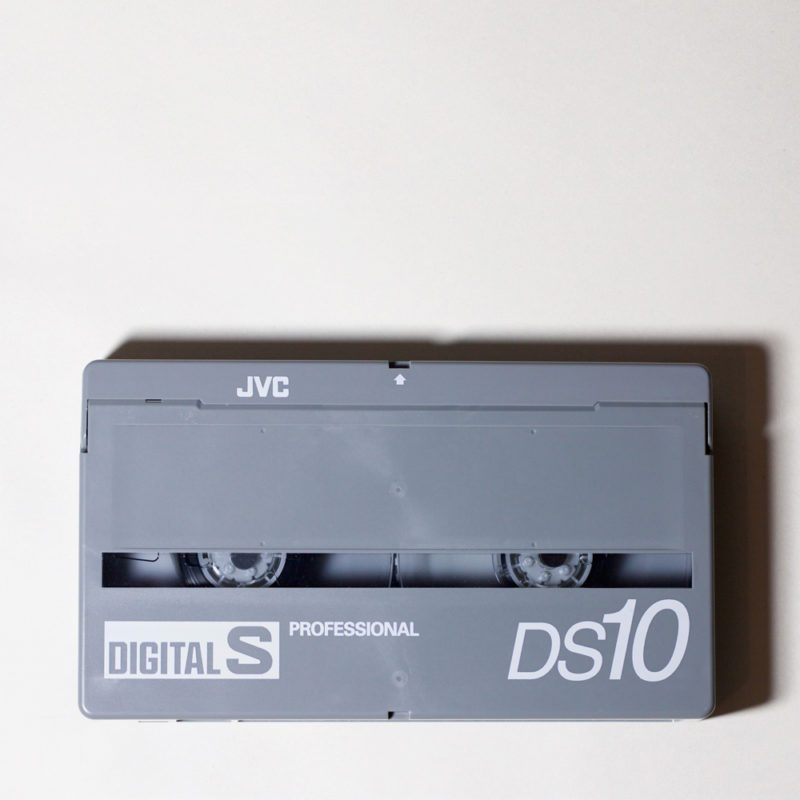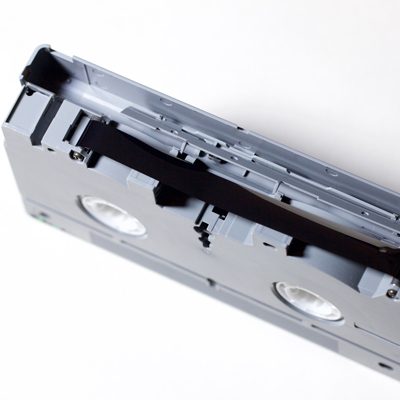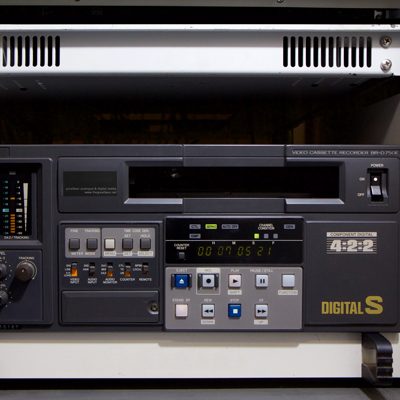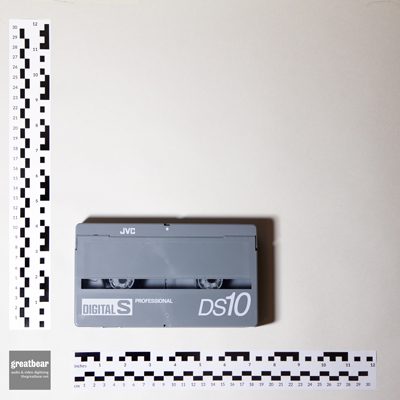introduction to D-9 / Digital-S video cassette transfer
Digital-S was a professional digital video cassette format introduced by JVC in 1995. Its name was changed to D-9 in 1999 by the SMPTE. D-9 tapes were available from both JVC and Fuji. As a format, it fell out of use in the early 2000s. At Greatbear we can produce archive-quality transfers from Digital-S / D-9 cassettes.
We offer a range of delivery formats for our video transfers. Following International Association of Sound and Audiovisual Archives TC-06 guidelines, we deliver FFV1 lossless files or 10-bit uncompressed video files in .mkv or .mov containers for archives. We can also produce Apple ProRes mezzanine files for ease of editing. We provide smaller viewing files as H.264 encoded .mp4 files or on DVD. We're happy to create any other digital video files, according to your needs.
We can provide the appropriately-sized USB delivery media for your files, or use media supplied by you, or deliver your files online. Files delivered on hard drive can be for any operating system MacOS, Windows or GNU/Linux and filesystems (HFS+, NTFS or EXT3).
D-9 / Digital-S video cassette recordings can vary both in duration and in the extent of physical tape degradation, so we always assess tapes before confirming the price of a transfer.
We offer free assessments - please contact us to discuss your project.
For an introduction to our assessment and treatment processes, please see our guide to "what happens to your video tape".
D-9 / Digital-S video machines
This format, while high quality with easy-to-service machines, was not widely used and as a result, good, low-use, working machines can be hard to find now.
This is a born-digital format yet a digital audio / video output was always optional with these models. Given that they were often used as a cheaper alternative to Sony's competing Digital Betacam system, the digital options are rarely fitted.
We have the following D-9 / Digital-S machines:
- JVC BR-D750 E - PAL
- JVC BR-D85 E - PAL with SDI (digital output) boards fitted
- JVC BR-D51 E - PAL D9 / SVHS playback facility
D-9 / Digital-S format variation
| video standard | D-9 / S-VHS ouput supported | 280 Mbit/s SDI digital transfer of audio & video | 2 channel audio output supported | 4 channel audio output supported | preservation of timecode supported |
|---|---|---|---|---|---|
| PAL | Digital-S / D-9 | ✓ | ✓ | ✗ | ✓ |
| PAL | S-VHS | ✓ | ✓ | ✗ | ✓ |
| NTSC | Digital-S / D-9 | ✗ | ✗ | ✗ | ✗ |
| NTSC | S-VHS | ✗ | ✗ | ✗ | ✗ |
Scroll to the right to view full table on smaller screens.
D-9 / Digital-S video tape risks & vulnerabilities
According to the Smithsonian Institution Audiovisual Preservation Readiness Assessment, 2019 Final Report, conducted by The Association of Moving Image Archivists (AMIA) Community Archiving Collective: AVPRAPPS Scoring System - Baseline Score for D-9 is “Level 1 Highest Risk”.
D-9 / Digital-S video production & recording history
Originally known as Digital-S, it was given the designation D-9 by SMPTE in the spring of 1999.
Despite its high quality metal particle tape formulation and "perceptually lossless" 3.3:1 compression ratio, it didn't fare well commercially in competition with concurrent professional formats such as Sony's Digital Betacam and DVCAM, or Panasonic's DVCPRO.
It was used for a short while by the BBC (JVC D-9 in action worldwide, 2000).





